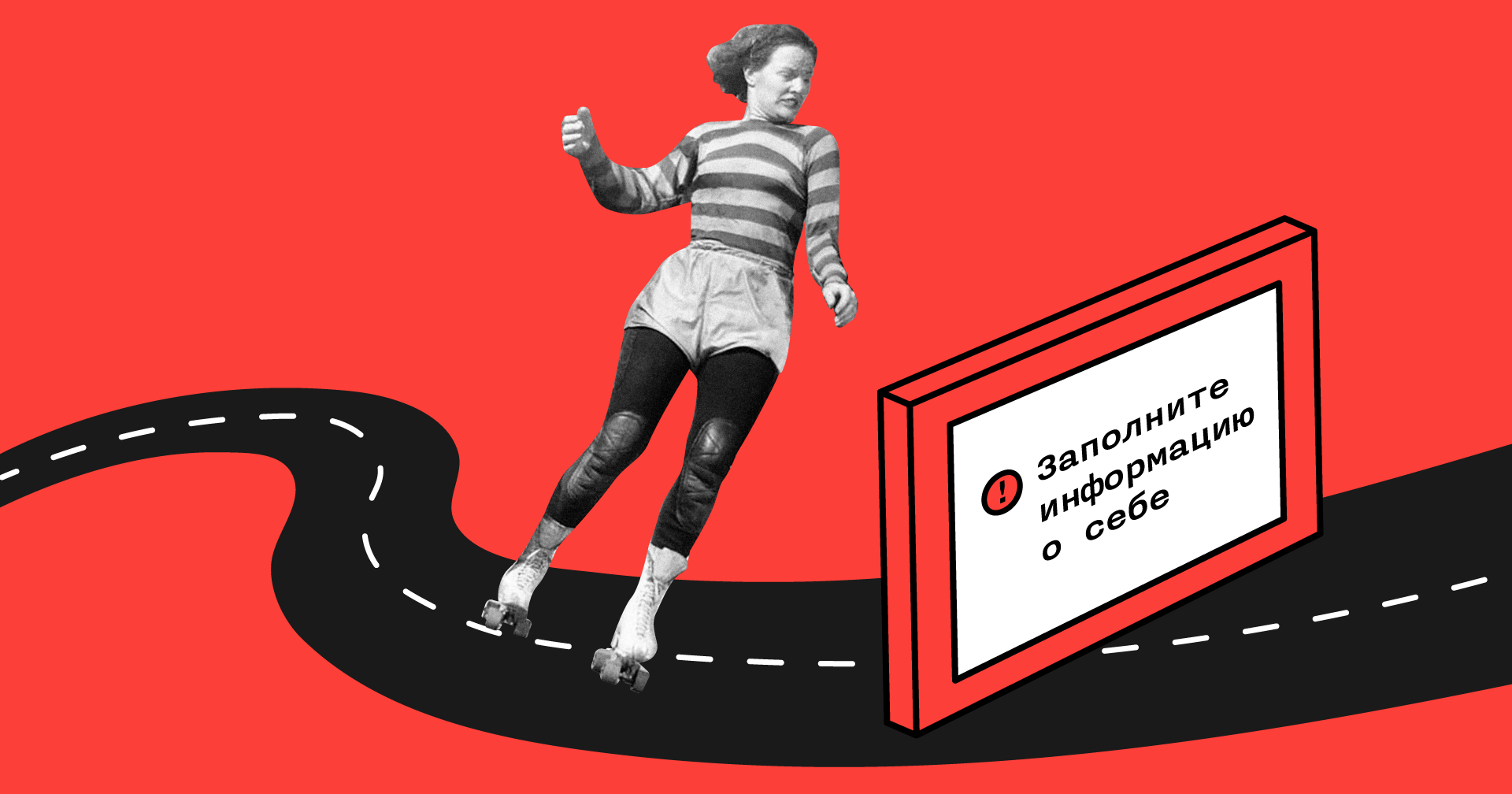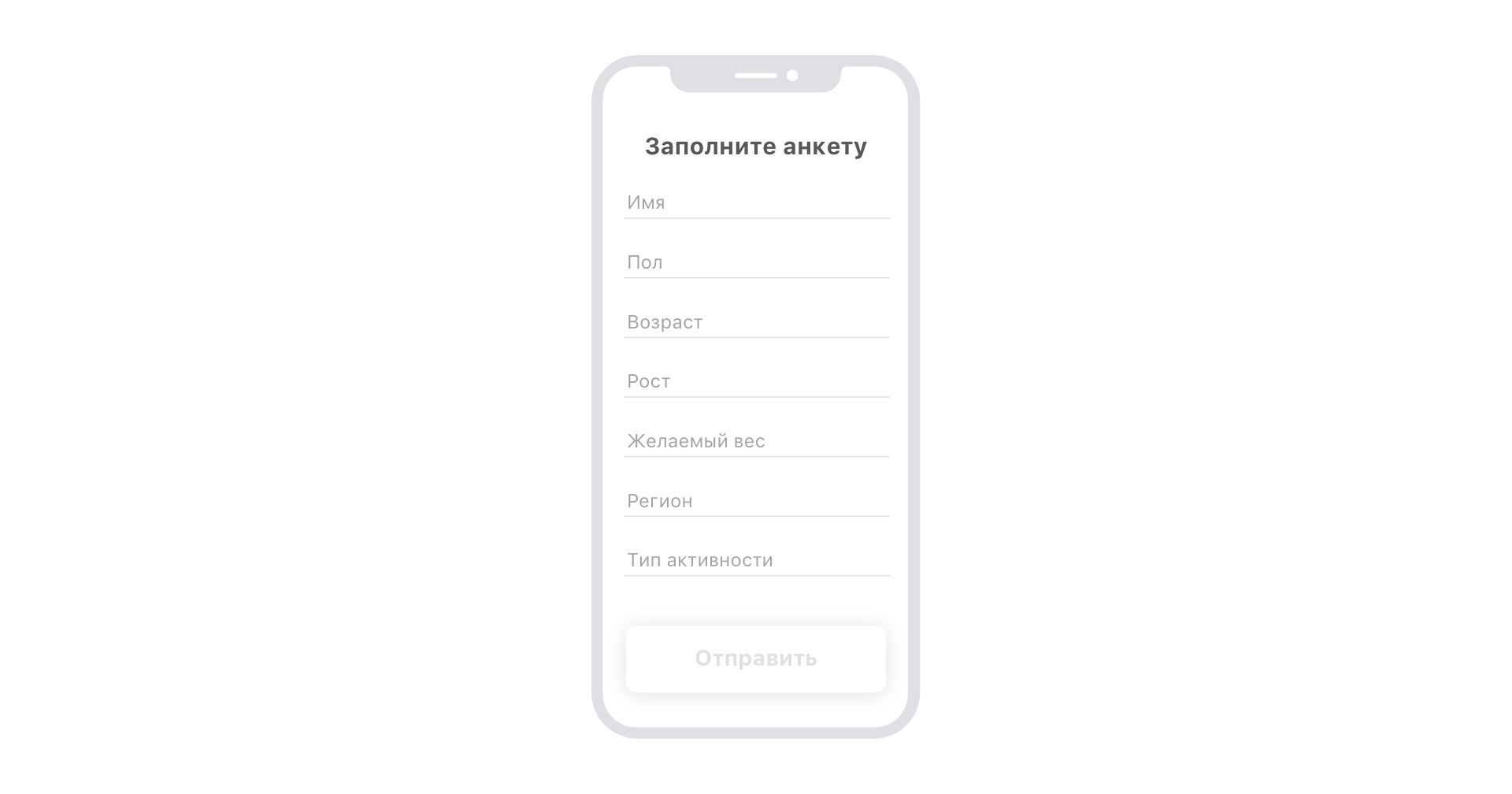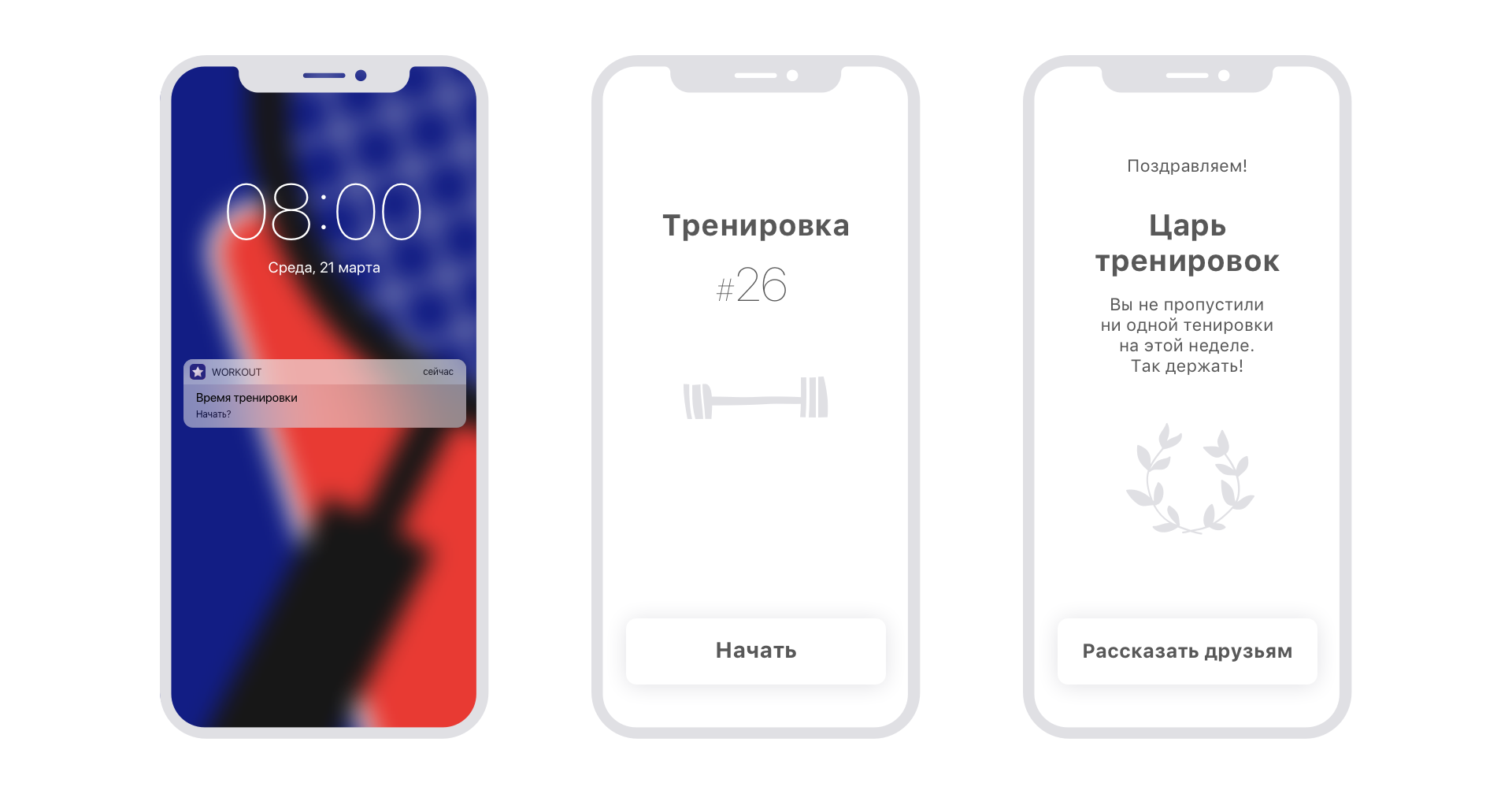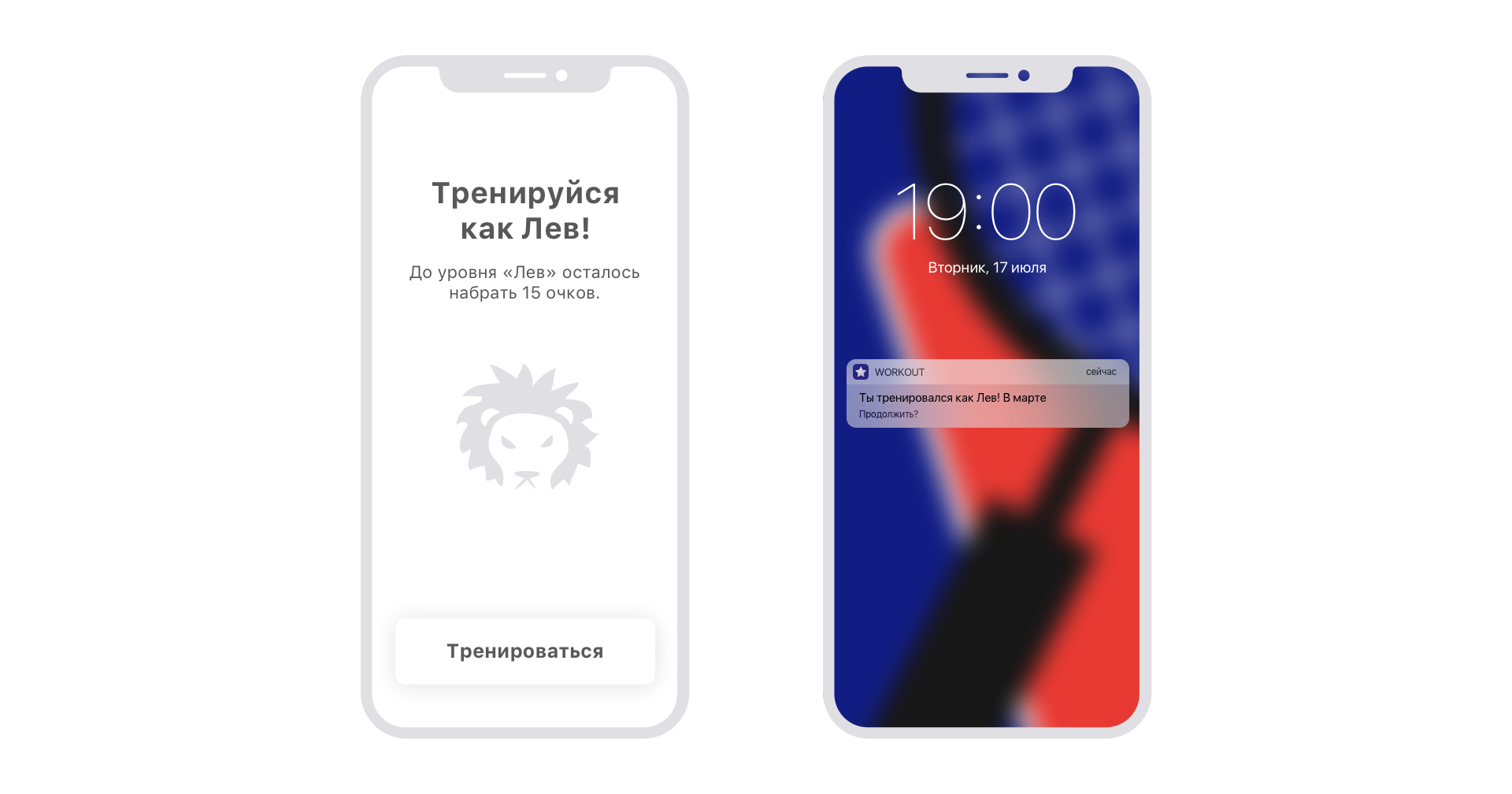You need to force yourself: drivers and barriers in interfaces

People are not robots - each has a bright personality and a rich inner world. But in the basic configuration we have more or less the same ergonomic and cognitive abilities. So, let's understand the management of the brain.
Emotions are the simplest signals that replace energy-consuming reasoning. A kind of way of self-control and self-motivation and at the same time a reward for satisfying needs. The more important the need, the stronger the emotion. And the higher the barrier, the stronger should be the driver that will force him to overcome.

When describing a custom script, it is important to understand:
- what will become the trigger;
- at which point a person will understand that he is about to receive a reward;
- what should he do to get it;
- what will be the reward.
Use drivers
Reward
The desire for profit - the main thing that makes a person get up from the couch.
Reward in any form: cashback, likes or new armor in the game, the easiest and most rational way to manage people. Want a person to register in the app? Promise a bonus.
The passions can be even sharper, if the reward is not guaranteed or flows away from the hands. Slyly placed “limited offers” (even if no one fights with you for this hotel room) force people to act without thinking.
So, a person wants to press the dice (an example is fictional and has no relation to the editorial staff of robots) to boast uncontrollably.
The harder the action, the more generous the reward.
People love moderately complex tasks - and there is a challenge, but it’s not that impossible to cope with it.
If you want the user to leave maximum information about himself or write a review - think over the bonus, according to the cost of time and effort.
The path to reward is long and thorny? Show progress: it is always easier to approach a big case if it is divided into stages. These are the “Step 1 of 4” and “Your profile is 67% complete” - after all, the proximity of the finish line opens the second wind. And do not forget about the bonuses at the end of the journey: “You have filled out a profile at 100%. Like you, only 159 people in the world. Get a laurel wreath on your avatar! ”

That guy with the cubes - he has already started, but the application can make an individual plan for him. You just need to fill in a few fields: name, gender, age, growing, desired weight, region, type of daily activity.
Habit
Most of the actions people perform without thinking, out of habit. Thinking is a very energy-consuming thing, so the brain will always choose the second between the best and the usual, because it is proven safe. Habit is the key to choosing intermediate options: “Medium package”, “standard size”, “medium roasting”. It's great that there is an opportunity to choose, but not right now.

Charging must have a trigger - at the same time, the application will send a notification. Charging can be short or not, and starts with one button. And, of course, after completing several workouts, the application will issue an achivka and offer it to boast.
Affiliation
People look at the behavior of their own kind and do the same. Especially when not sure of the choice. Give them the opportunity to see the actions of other people and broadcast their choice, for example, in the social network, to feel part of a group of like-minded people.

When exercise becomes a routine, motivation is expectedly reduced. But there is a worldwide community of exercise lovers! And among its participants are famous athletes and actors, colleagues and friends. Nice to be among the beautiful.
By the way, at Apple, Google and Facebook have long understood the determining role of habit in a person’s life. And today they are engaged in its ethical dimension. It seems that Facebook users are happy with the opportunity to endlessly stick on cool content thrown by algorithmic tape. But here lies a contradiction with the interests of society: people spend a huge amount of time, attention and energy for nothing. What to do with it? Sooner or later they will have to decide - corporations or states.
Overcome barriers
Laziness
Laziness protects human enthusiasm for something more interesting. The engine of progress leads to new, even more convenient services, and helps to sift out what requires too much power. Complex, requiring long study and configuration of interfaces - not for lazy and, therefore, not for people.
Save without asking. Keep the data until the user decides to delete it. And do not forget to provide for the possibility of canceling any action, including deletion.
Google Docs and default notes save any changes. Yandex.Music opens the album that you listened to last. Telegram remembers unfinished messages.
If the Internet is suddenly gone, Facebook offers to write a comment that will publish when the network appears.
A couple of months later the man got tired. It is time to remind of the days of past glory, having shown its best results. But what about the cubes, and the desired weight, which he indicated at the beginning? By the way, in his area now there are already two thousand trainees. And half of them run, because the application has a new tracking. Maybe change the activity?
Physiology
Most people have two hands, ten fingers, two eyes. Our fingers cannot be as thin as knitting needles and as long. It is convenient to hold only one item in your hand. Reading on the go is inconvenient, and not particularly desirable.
In mobile applications, design errors rarely lead to tragic consequences for the user, but almost always for the product. Inconvenient product for the user anyway that does not exist. In this list, UX-poor have: applications with unusual navigation patterns, unobvious information hierarchy, cumbersome onboarding, lack of important functions, such as searching, too heavy content, inconsistency with Apple and Android templates, etc.
Adapt. Yes, people have rather thick and clumsy fingers compared to the elegant buttons on the screens of mobile phones. Therefore, on iOS keyboards, the touch area is dynamically adjusted to make it easier to type the correct letter. And just in case, it highlights the characters you press. Another example is a keyboard with large buttons for typing numbers.
Charging is when a person spends most of the allotted time in a horizontal position, sweating, with a quickened pulse, sometimes angry. “Another round? Oh no! ”We need one big“ Start / Stop ”button and a countdown in large numbers, because there are only“ Three, two, one ... You have finished! ”
Primitiveness of consciousness
A person’s computational abilities are very limited — most are able to consciously control only one operation. We can solve problems only consistently - by performing one simple step after another. This is a very serious barrier and the cause of many user errors when interacting with interfaces.
The perfect interface is an invisible interface. The man does not want to poke at the buttons - he wants to get the result. And so that all the work was done by the computer - right now and by itself.
Do not complicate the path to the goal: one button - one action - one result. They picked up a smartphone - they unblocked it with a Face ID. Download the application in the App Store, tied the card - and once a month a fixed amount will be debited from it itself. “Chose-clicked-got” - what could be easier?
Solve the main task.When an application can do too much, it puts people in a stupor. Moreover, the person will still ignore everything that does not help him solve the problem now. And it is much easier to remember: this application orders food, another compares discounts in the nearest supermarkets, and the third shows traffic jams.
One of the most common misconceptions is a lack of understanding of the users' point of view. A great example is how gradually the hamburger menu leaves the mobile interfaces. It would seem that it hid so many useful features! But after all, it requires action - an unreasonable amount.
A person has 10 minutes, and he just wants to start practicing - or does not really want to, but he decided. If you need to show how everything works, it is better to arrange step by step hints, and leave a minimum of elements on the screen.
And finally, the interface is definitely a robot, but it will have to be explained in a human way. A short, unambiguously formulated message that promotes action is a standard to which one should strive. "Application installed" - the reporting language of machines. “Done. Run? ”Is an understandable language of people, which not only conveys a formal message about a successful installation, but also offers to start work immediately.
Reward is close!
